There are many plants that repel aphids and in recent years there has been much scientific research into this subject, the NCBI, the National Centre for Biotechnology Information in the U S A (see link below) is just one source of new information. Their research is quite in depth but It all comes down to observing nature and applying what you see to your own plot. So the following is all about plants that repel aphids but could easily be titled… Companion Plants.
According to the NCBI plants repel aphids by :-
- Disguising the aroma of the host plant
- Changing the biochemistry of the host plant, making them unwelcoming to aphids
- Attracting predator insects
- Disrupting the behaviour of the aphids
Plants That Repel Aphids
There are many plants that repel aphids and for best results you should include as many as you can on your plot.
Marigolds Repel Aphids
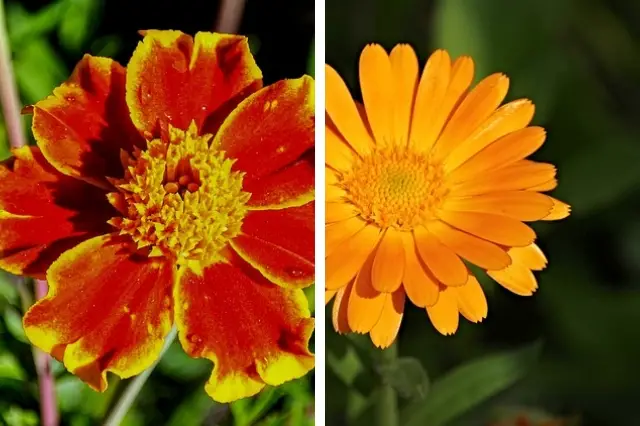
The Marigold not only physically repels aphids but also changes the biochemistry of the host plant to make it completely unattractive to aphids. Use either the Tagetes or the Calendula officinalisas genus. both are effective and both grow as annual plants in the UK. The leaves do have a distinctive aroma and could also act to disguise the host plant.
When the season is over turn marigold plants into the soil and they will continue to keep bad pests away from your plot.
Mint Repels Aphids
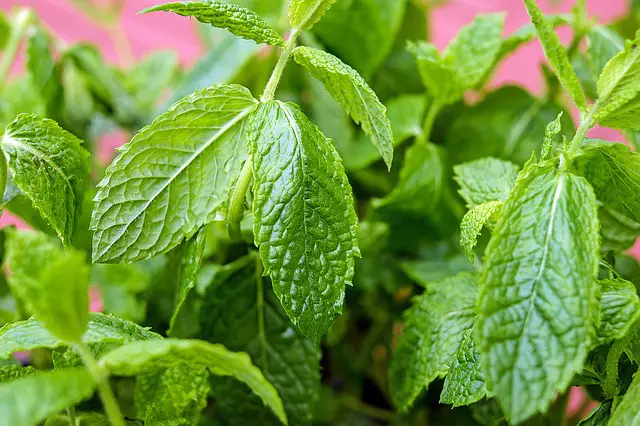
Because of it’s strong aroma, mint disguises host plants, keeping aphids away. If you decide to use mint on your plot, grow it in pots as mint will spread uncontrollably and become invasive.
All plots should contain a few herbs and mint is beneficial to the organic gardener as it attracts parasitic wasps and hover flies both of which keep harmful pests at bay.
Alliums Repel Aphids
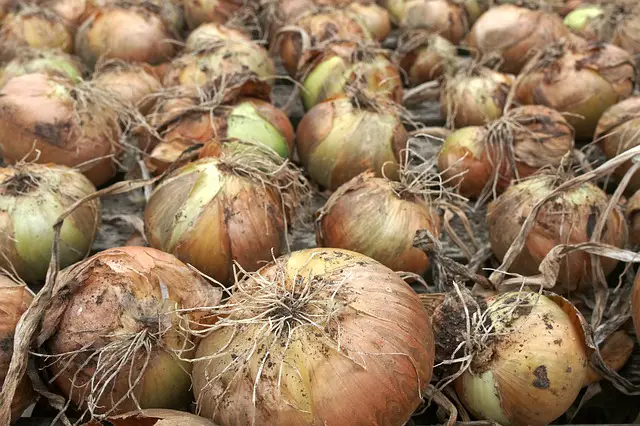
Alliums include onions, garlic, leeks, and chives are all plants that repel aphids. This is due to their strong smelling aroma which will disguise your crops saving them from aphid infestation. You can make a spray to repel aphids by chopping 4 cloves of garlic (Allium sativum) adding them to a pint of water.
Leave for 7 days then strain the liquid into a spray bottle and spray directly onto your crops to protect them from aphid attack. Never spray on very hot, sunny days and remember to re apply after downpours of rain.
Growing chives (Allium schoenoprasum) with plants susceptible to aphid attack will repel the aphids within 7 days. This is because the aroma from the chives is transferred to the crop plant at a micro level, actively repelling and deterring aphids.
Onions (Allium cepa) have long been known to repel aphids. The consensus is that the high sulphur content in alliums not only repels aphids but also protects against damaging insects in storage facilities. Also alliums contain “allelochemical volatiles” well known to be used to control pests.
The aromas from alliums also affect the behaviour of aphids and their reproduction cycle. It is well worth growing alliums in companion to your crops to repel and control aphids.
Rue Repels Aphids
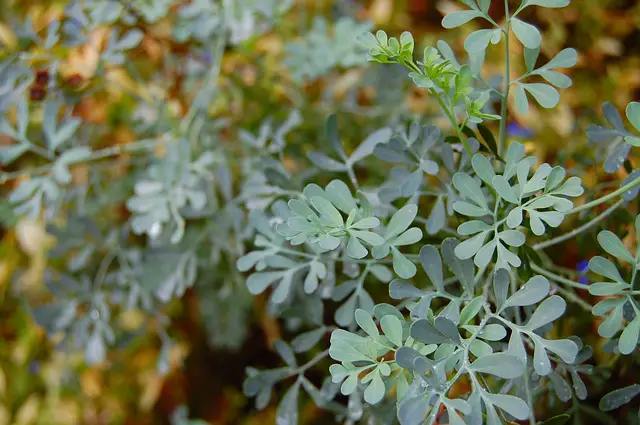
Rue ( Ruta graveolens) is another strong smelling herb that repels aphids. Rue is also bitter tasting and as aphids feed on the sap of their host plants it makes perfect sense that they will be repelled by rue.
Grow rue to attract parasitic wasps and hover flies to your garden. These beneficial insects help to keep many garden pests at bay.
Rue is a drought tolerant, hardy plant. This means it will survive most summers and winters in the UK, one word of caution, rue should only be eaten in small quantities (if you can put up with it’s bitterness).
Catnip Repels Aphids
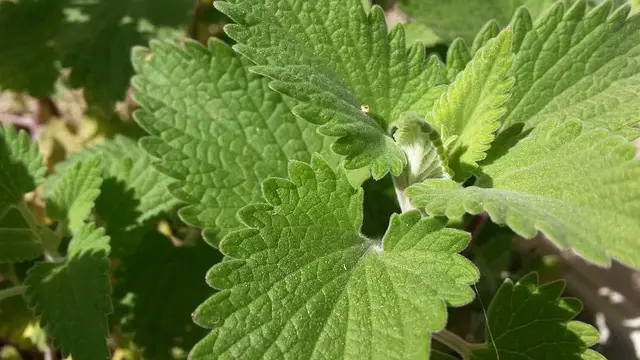
Another strong smelling plant,catnip (nepeta cataria) is also known to repel aphids. If you decide to grow catnip be advised it is very popular with cats, and can cause problems with cats fouling the soil and digging up plants.
If allowed to flower, catnip is also a very good plant for attracting pollinators to your garden. Just one word of warning, catnip will spread profusely so you will need to keep on top of the seedlings as they come through. The flip side of that is once you have it, you will get a steady supply of plants each year.
Basil Repels Aphids
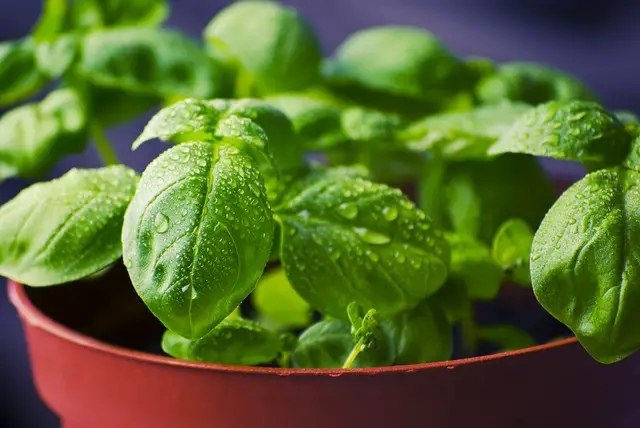
Basil ( Ocimum basilicum) is a very versatile herb, and is well known to repel aphids. In studies done with pear trees using basil as companion plants, the tests concluded that the trees with basil companions had a “significantly lower population” of aphids than the control group (trees without basil companions).
If you grow or just eat tomatoes then basil is a must for your garden and/or greenhouse. You can never have too many basil plants during the summer months and it’s easy to grow too.
Rosemary Repels Aphids
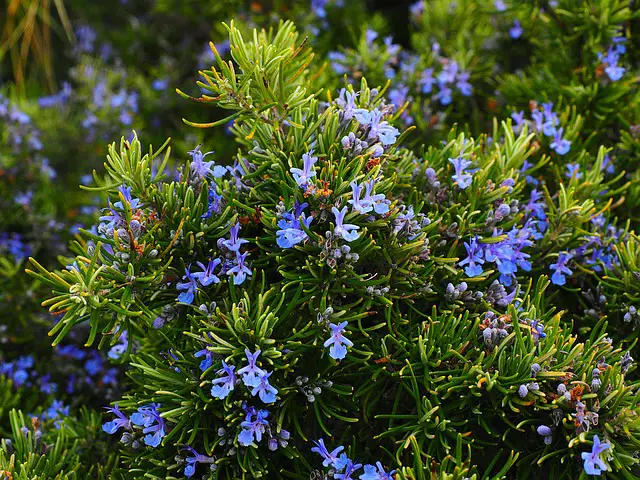
Rosemary ( Rosmarinus officinalis) is another aromatic herb and in tests not only companion planting but also just using rosemary oil in a spray will repel aphids.
Another dual purpose herb, rosemary repels aphids and also attracts beneficial insects like bees and butterflies to your garden.
Lavender Repels Aphids
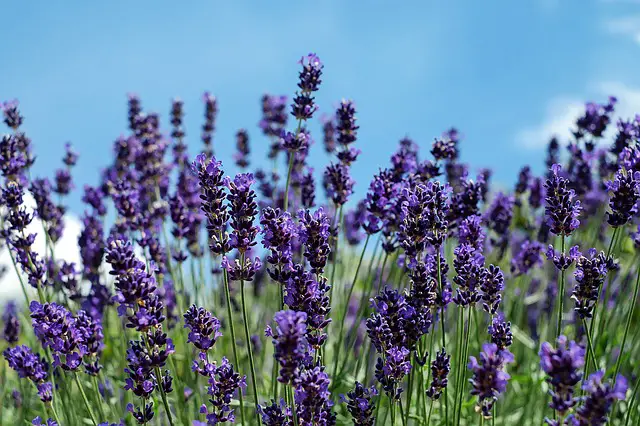
Lavender ( Lavandula latifolia ) has been successfully used to change the biochemistry of the host plant (in this case peppers) to prevent the female aphid from laying eggs. This was just by companion planting, no tricks or chemical sprays just purely organic gardening.
Like rosemary, lavender also attracts beneficial insects to your garden including bees and many butterflies. Also like rosemary lavender originates from the Mediterranean and is happy with our hot, dry summers. They also are both perennial plants that will live for many years.
Rye Repels Aphids
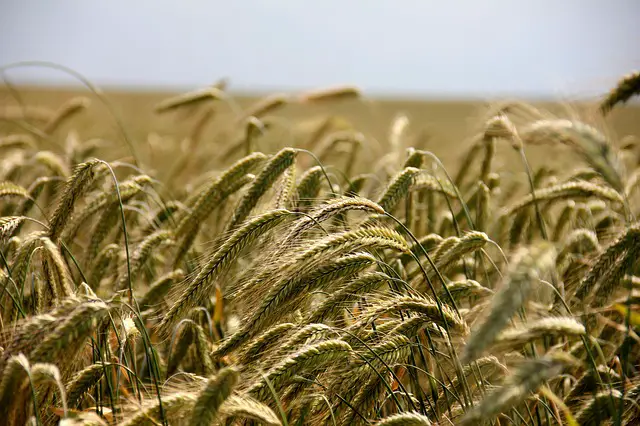
Rye (Secale cereale) is a cereal plant, not usually considered as a companion plant. But according to research when grown in companion with other plants rye reduced the host finding ability in aphids.
Spear Thistles Repel Aphids
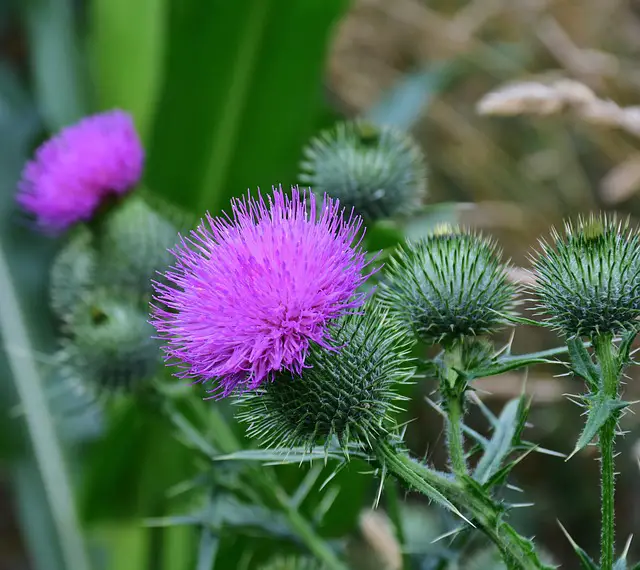
Spear Thistles (cirsium vulgare) have been proved to repel the aphid that attacks rye crops. So if you grow rye it will be advantageous to allow the spear thistle to grow amongst your rye plants.
Savory Repels Aphids
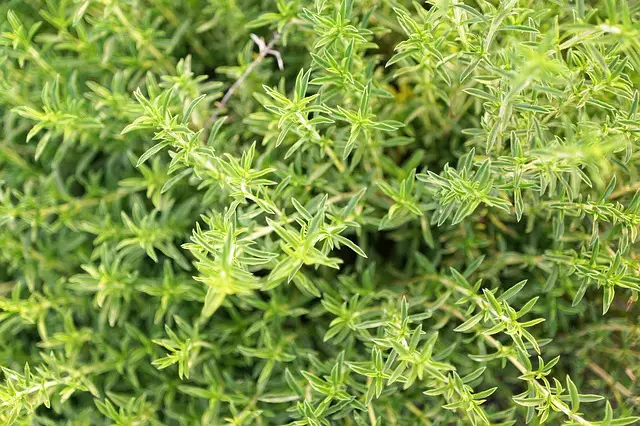
The herb savory (Satureja hortensis) is particularly good at repelling the black bean aphid. Grow some savory around your beans to repel the potentially devastating aphid infestation in late spring/early summer.
If allowed to flower savory will attract beneficial pollinators to your garden including bees and butterflies.
Plants That Are Proven To Repel Aphids
The majority of these aphid repelling plants have been tested under scientific conditions and proven to be effective. So thanks to the National Centre for Biotechnology Information in the USA for compiling this data. The others have been tested by countless gardeners throughout the world. So get companion planting and benefit from these findings now.
You have nothing to lose and a whole heap of benefits to reap (literally) Most of the plants on this list are readily available from seed catalogues and garden centres. Many can be used in the kitchen as well and the rest are colourful editions to your garden.

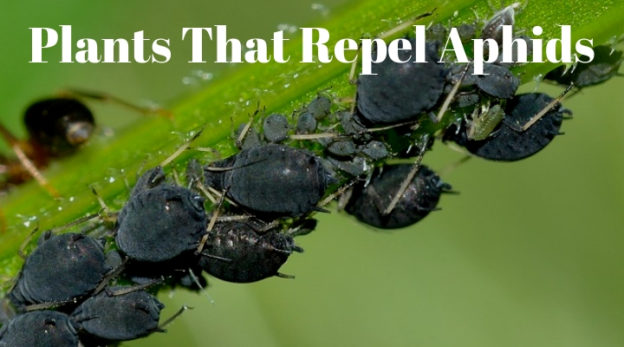

One approach to aphid control that seems successful in my garden is to tolerate them to encourage lady bugs. I scatter garden rough areas with “wild garden kales” from Territorial Seeds. As the flower heads appear they get aphids, which seems to promote ladybugs. If ants appear, then I pull the plants. Same with fava (broad) beans, though I’m more likely to try ant suppression to get the bean crop.
I’ve done this for some time, and garden visitors often note the abundance of ladybugs. Less obvious is the presence of their voracious larvae, which I figure must be around since I have so many adults.
Purple kale seems to be the best aphid host. Perhaps because of the marginal soil where I scatter the kales, they seem less likely to have ants.
Hi Peter thanks for that great tip, ladybugs or ladybirds as we call them over here are the best natural aphid control and many of the plants I use are to attract the ladybugs. As you say the larvae must be present and it’s not so important to see them, more important is the resulting lack of aphids. Thanks for taking the time to read and comment.
Ah I see I didn’t read far enough of your excellent work. This topic is covered in a couple of ways already under headings of growing plants to attract predators and also in the post on aphid protective measures healthy plants enjoy.
Thanks for your time in putting together your guides.
Thank you for taking the time to read through them,and for your kind words, happy gardening.
Those black aphids in the picture above are exactly what I get on my chives which are supposed to repel aphids. Why?!
Hi Leah,
Thanks for reading my blog and taking the time to comment. Sadly there’s a different type of aphid for pretty much every plant out there.
All the best
Steve